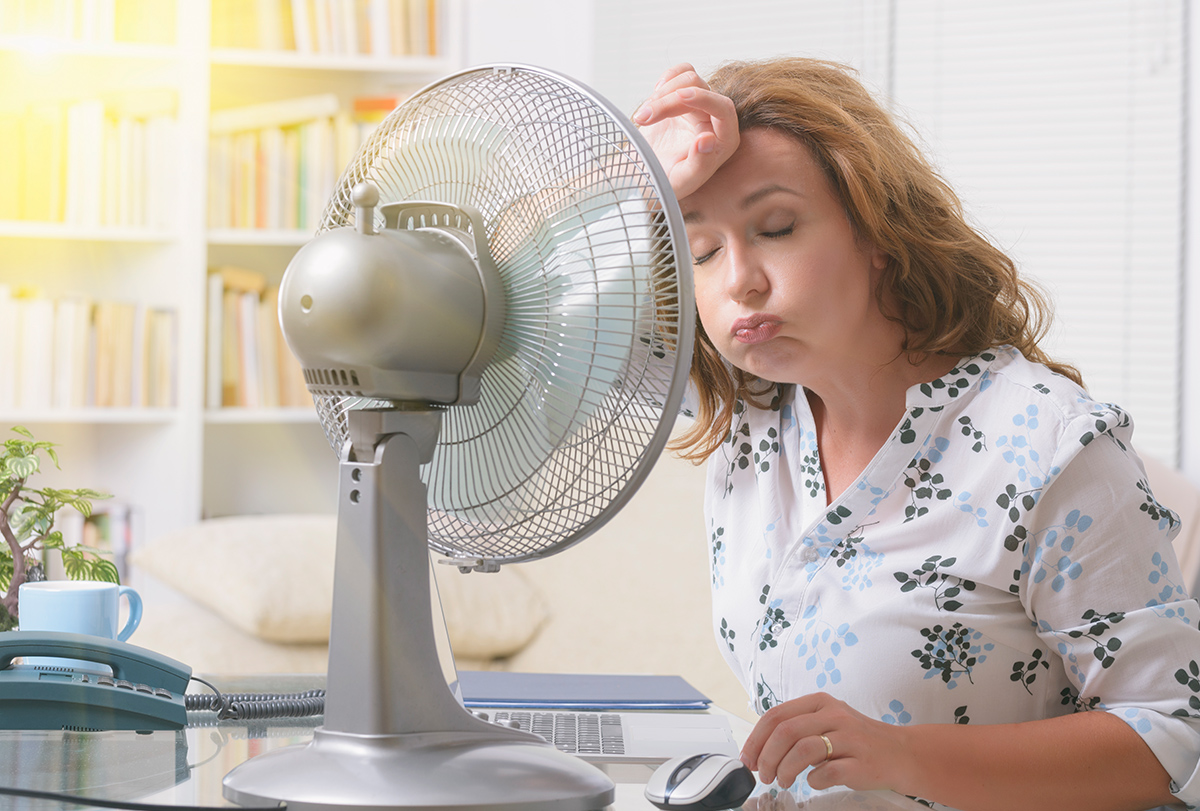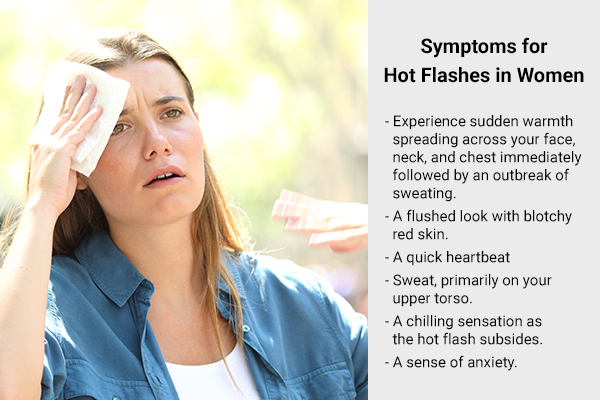In this article:
Going through menopause is no walk in the park. Along with adapting to all of the changes your body is going through, you also have to deal with hot flashes.

Hot flashes can be downright uncomfortable, making you feel like you’re on fire from the inside out. The good news is there are things you can do to help lessen the intensity and frequency of hot flashes.
So, if you’re looking for some relief, read on!
Causes of Hot Flashes in Women
The most frequent cause of hot flashes is a change in hormone levels before, during, and after menopause.
How exactly hormonal alterations result in heat flashes is unknown. However, the majority of evidence points to the hypothalamus, your body’s thermostat, as the likely source of hot flashes since it becomes more sensitive to even minute variations in body temperature when estrogen levels are low.
A hot flash is a series of actions that the hypothalamus starts when it perceives that your body is becoming too warm.
Hot flashes and nocturnal sweats are almost never brought on by anything other than menopause. Other potential causes include adverse drug reactions, thyroid issues, some malignancies, and side effects of cancer therapy. (1)(2)
Symptoms of Hot Flashes

A hot flash could cause you to:
- Experience a sudden warmth spreading across your face, neck, and chest immediately followed by an outbreak of sweating
- A flushed look with blotchy red skin
- A quick heartbeat
- Sweat, primarily on your upper torso
- A chilling sensation as the hot flash subsides
- A sense of anxiety (1)
Treatment for Hot Flashes
Treatment for hot flashes depends on the cause and severity of the symptoms.
If your doctor thinks it is advisable, hormonal replacement therapy (HRT) may be given as a way to manage symptoms. In other cases, after taking a detailed medical history, your doctor may recommend lifestyle changes such as stress reduction. (3)(4)
Low estrogen levels are the main contributor to symptoms, making this the most crucial hormone to replenish. Progesterone is also required if you have a uterus in order to preserve the lining.
Hormonal replacement therapy has a very high success rate in reducing menopausal symptoms. There are pills, skin patches, gels, sprays, and, less frequently, implants available for purchase.
The advantages of using hormonal replacement therapy often exceed the hazards. If you are receiving certain cancer therapies, you might not be able to take hormonal replacement therapy or you could decide not to.
Unfortunately, the Women’s Health Initiative (WHI) discovered that hormonal replacement therapy is not cardioprotective, does not lower mortality risk, and increases the risk of breast cancer, venous thromboembolism, and stroke. (5)
How Long Do Hot Flashes Last?
Different women have hot flashes at different rates and intensities. The length of a single episode might range from 1–2 minutes up to 5 minutes.
Hot flashes can be minor or quite strong and hinder regular tasks. They could occur at any hour of the day or night. Nighttime hot flashes (also known as night sweats) can keep you awake and have a long-term negative impact on your sleep. (1)
Final Word
Hot flashes can have many causes, but the most likely culprit is menopause if you are a woman between the ages of 40 and 50 years. Several treatment options are available, both symptomatic and long term, and the best decision would be to consult with a medical professional about the way forward.
 Continue ReadingHow to Manage Hot Flashes at Home
Continue ReadingHow to Manage Hot Flashes at Home
- Was this article helpful?
- YES, THANKS!NOT REALLY


